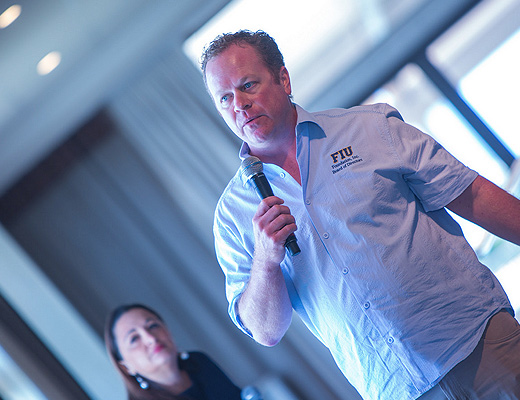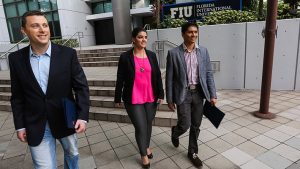Innovate, take risks and embrace technology, Chad Moss, executive vice president of Moss & Associates, urged FIU students at the 2015 Hollo School of Real Estate Jerome Bain Developer Luncheon.
“This is an exciting, technology-driven era for the construction industry,” Moss, an FIU alumnus (BS ’94) and member of the FIU Foundation Board of Directors, told attendees at the luncheon, held September 24 at the Rusty Pelican in Key Biscayne. “As tech-based innovations continue to evolve and mature, they will provide significant benefits for businesses that are building in Florida.”
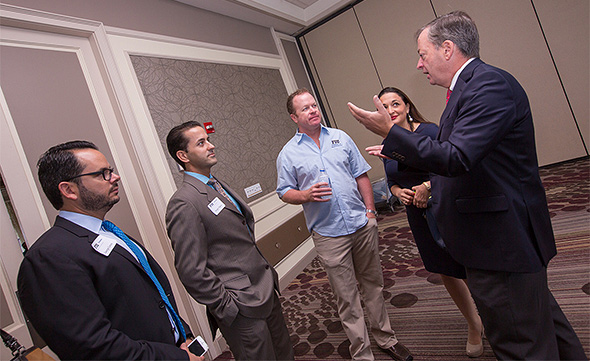
Launched in 2013, the Developer Luncheon series offers students and graduates a forum where they can gain insight into the world of commercial and residential development. High-profile developers offer first-hand advice about what it takes to make a project a reality.
“The idea is to give students a better understanding of all the components and all the members of the village that are involved in a large-scale real estate development,” said faculty member and attorney Suzanne Hollander, who noted that speakers also offer valuable insights into the successes and challenges that companies face.
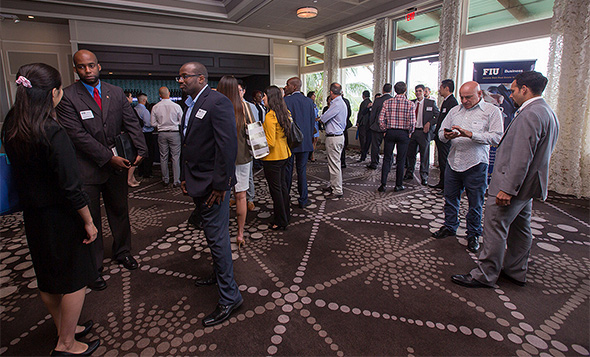
Family-owned-and-operated Moss & Associates’ signature projects include the Miami Marlins ballpark, which opened in 2012, and the groundbreaking 620-bed Parkview Residence at his FIU, opened in August 2013. That year, the company donated $250,000 to FIU to build the Moss and Associates Built Environment Informatics Laboratory (BEIL), a high-technology facility that will help students learn from real-world data and case studies using virtual simulations without having to make trips into the field.
Moss, who co-founded the company in 2004, has served as assistant field engineer, project engineer, project manager, and account manager. He urged students to explore the latest technology in the industry.
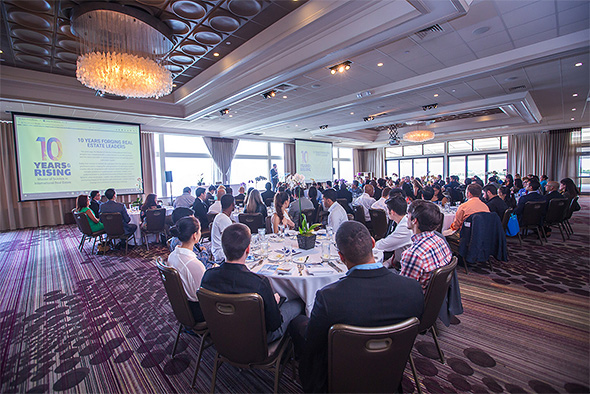
Sharing the next generation of construction tools.
New software and apps allow construction companies to handle the increasing complexity of commercial projects and boost productivity. These include programs for real-time data collection and energy modeling. At the luncheon, Moss shared information about Building Information Modeling (BIM), which provides 3-D graphics and allows for the automatic generation of drawings and reports, design analysis, schedule simulation and facilities management. Among the benefits, Moss noted, are more efficient communication between the project teams, the ability to make better-informed decisions, increased efficiency, and reduced costs.
“The teams are able to identify glitches and deal with challenges that we are able to solve digitally,” Moss added. “We just finished a $48 million student housing project at FIU and used BIM to resolve thousands of conflicts before we got in the field, saving the school about $1.5 million.”
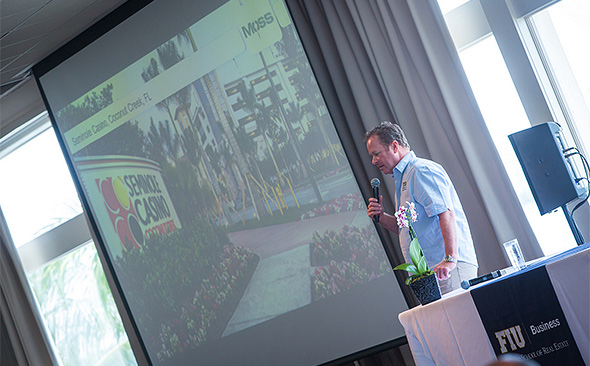
Yet technology isn’t the only key to construction success. As construction activity in South Florida continues to flourish, Moss highlighted the importance of strong business relationships, drivers of new projects and expanded initiatives. “You have to sit down and talk,” he added. “It’s no longer a formal, structured process.”
Seeing construction from a different perspective.
Pierre Apollon, a professional engineer and real estate investor currently enrolled in FIU’s Master of Science in International Real Estate program, described Moss’ presentation as invaluable.
“He provided a realistic view of the current real estate climate, gauged by construction activities, and future global opportunities especially in the sustainability arena,” said Apollon, who will graduate in December 2015. “He introduced many views that, at times, are overlooked when making fundamental real estate or development decisions.”
“This was the first time I saw construction from a different perspective,” said Maria Blaschke, an accounting student in the College of Business’ undergraduate program. “It definitely provided us with knowledge that we normally wouldn’t learn in class.”
William G. Hardin, director of the Hollo School of Real Estate, told students, “You will have a lead role in the creation of modern Miami and be able to look at the future. MSIRE graduates are taking leadership roles in real estate and making things happen.”


